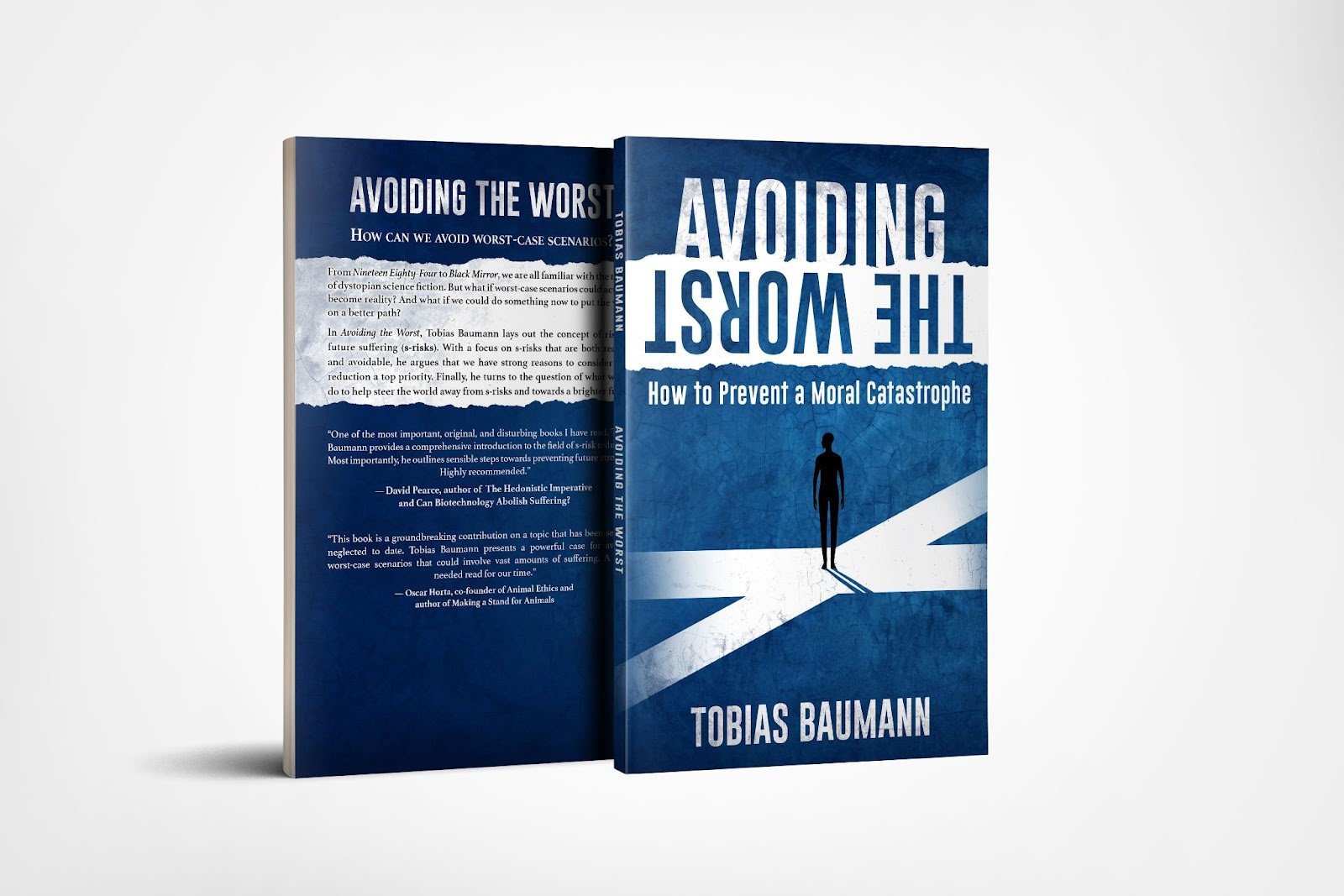I have just published my new book on s-risks, titled Avoiding the Worst: How to Prevent a Moral Catastrophe. You can find it on Amazon, read the PDF version, or listen to the audio version.
The book is primarily aimed at longtermist effective altruists. I wrote it because I feel that s-risk prevention is a somewhat neglected priority area in the community, and because a single, comprehensive introduction to s-risks did not yet exist. My hope is that a coherent introduction will help to strengthen interest in the topic and spark further work.
Here’s a short description of the book:
From Nineteen Eighty-Four to Black Mirror, we are all familiar with the tropes of dystopian science fiction. But what if worst-case scenarios could actually become reality? And what if we could do something now to put the world on a better path?
In Avoiding the Worst, Tobias Baumann lays out the concept of risks of future suffering (s-risks). With a focus on s-risks that are both realistic and avoidable, he argues that we have strong reasons to consider their reduction a top priority. Finally, he turns to the question of what we can do to help steer the world away from s-risks and towards a brighter future.
For a rough overview, here’s the book's table of contents:
Part I: What are s-risks?
Chapter 1: Technology and astronomical stakes
Chapter 2: Types of s-risks
Part II: Should we focus on s-risks?
Chapter 3: Should we focus on the long-term future?
Chapter 4: Should we focus on reducing suffering?
Chapter 5: Should we focus on worst-case outcomes?
Chapter 6: Cognitive biases
Part III: How can we best reduce s-risks?
Chapter 7: Risk factors for s-risks
Chapter 8: Moral advocacy
Chapter 9: Better Politics
Chapter 10: Emerging technologies
Chapter 11: Long-term impact
And finally, some blurbs for the book:
“One of the most important, original, and disturbing books I have read. Tobias Baumann provides a comprehensive introduction to the field of s-risk reduction. Most importantly, he outlines sensible steps towards preventing future atrocities. Highly recommended.”
— David Pearce, author of The Hedonistic Imperative and Can Biotechnology Abolish Suffering?
“This book is a groundbreaking contribution on a topic that has been severely neglected to date. Tobias Baumann presents a powerful case for averting worst-case scenarios that could involve vast amounts of suffering. A much needed read for our time.”
— Oscar Horta, co-founder of Animal Ethics and author of Making a Stand for Animals


Audiobook version: [new] Aaron made an awesome audiobook version here.
[Original] It's easy to turn it into an audiobook version with Evie or Natural Reader for anybody who likes to read with their ears instead of their eyes. Full guide I wrote up on how to turn everything into audio here
Also, Tobias, if you want to make a super simple audiobook version of the book, I recommend using Amazon Polly. It'll probably cost under $100 and take less than 10 hours and increase the number of people who read your book by a lot. I know a ton of people who only read with their ears or who are more than 10x likely to read something if there's an audio version. Even I only found out about this book because I listened to the article on the Nonlinear Library (sorry for the shameless but relevant plug 😛)
Finally, congrats on the book! So far I'm loving it. Thank you for writing it. I think s-risks deserve more attention in the EA movement and think this book will help move the needle.